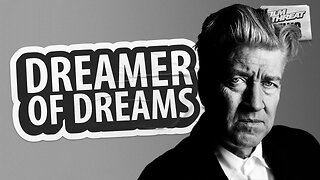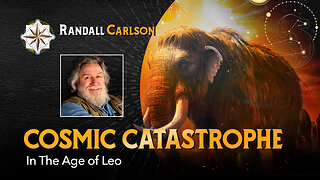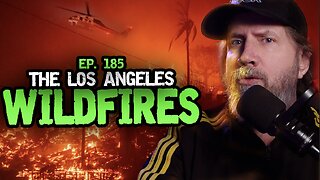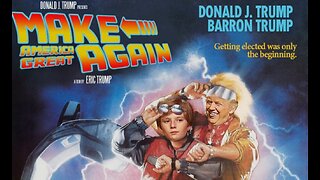Premium Only Content

Class 8: Uncertainty & Probability Theory: The Logic of Science: What Probability Is 1
Lesson 8: What Probability Is 1.
We start by answering an excellent question.
Anon asks:
"I have a question about Bayes' Theorem and philosophical arguments. I ask because I have a broad scholastic approach to philosophy that relies metaphysical demonstrations.
"Is the contrast between probabilistic vs deductive arguments unhelpful? It seems like deductive arguments mask the uncertainty of probable premises. If each premise of an eight-step argument is 95%, the lower bound would be 66% (given independence).
"For some reason, this doesn't sit right with me. Bayes' Theorem seems useful for when deciding theories within the world, but not applicable to first principles (like the reality of change). But I don't have much of a mathematical background. Any assistance you can provide would be extremely welcome."
This leads us to show probability, being logic, doesn't care about the premises. Just about the CONNECTIONS between premises and the proposition of interest.
HOMEWORK: THERE IS NO SUCH THING AS UNCONDITIONAL PROBABILITY, I.E. THERE IS NO Pr(A), only Pr(A|B). If you think not, find a Pr(A)!
All questions will be answered in the following Monday's lecture.
Written lecture: https://www.wmbriggs.com/post/51635/
https://wmbriggs.substack.com/
Permanent class page: https://www.wmbriggs.com/class/
-
 22:53
22:53
Film Threat
23 hours agoA TRIBUTE TO VISIONARY DIRECTOR DAVID LYNCH | Film Threat News
3.62K2 -
 20:30
20:30
Exploring With Nug
1 day ago $0.61 earnedMissing Father of 2 FOUND Underwater In Shallow Pond!
2.78K2 -
 19:19
19:19
This Bahamian Gyal
1 day agoThe View PRAISES Michelle Obama for DITCHING TRUMP inauguration, "when they go LOW, go even LOWER"
1.76K7 -
 14:25
14:25
Degenerate Jay
18 hours agoThe Flash Movie Failed Because People Hate The Character? Sure.
2.69K5 -
 28:30
28:30
CharLee Simons Presents Do Not Talk
5 days agoSam Anthony from YourNews.com (with host CharLee Simons)
6.08K -
 52:34
52:34
PMG
15 hours ago $0.42 earnedHannah Faulkner and Steve Friend | EXPOSE THE FBI CORRUPTION - KASH PATEL
3.81K4 -
 25:33
25:33
marcushouse
1 day ago $35.61 earnedStarship Exploded! What Went Wrong? Flight Test 7 Explained
168K59 -
 1:00:50
1:00:50
Squaring The Circle, A Randall Carlson Podcast
1 day ago#035 Cosmic Catastrophe In The Age Of Leo - Squaring The Circle: A Randall Carlson Podcast
105K30 -
 1:33:14
1:33:14
Jamie Kennedy
1 day agoThe LA Fires...
89.6K19 -
 2:01:45
2:01:45
Quite Frankly
1 day ago"Inauguration Eve: Trump Time Travel Review" 1/17/25
68.1K64